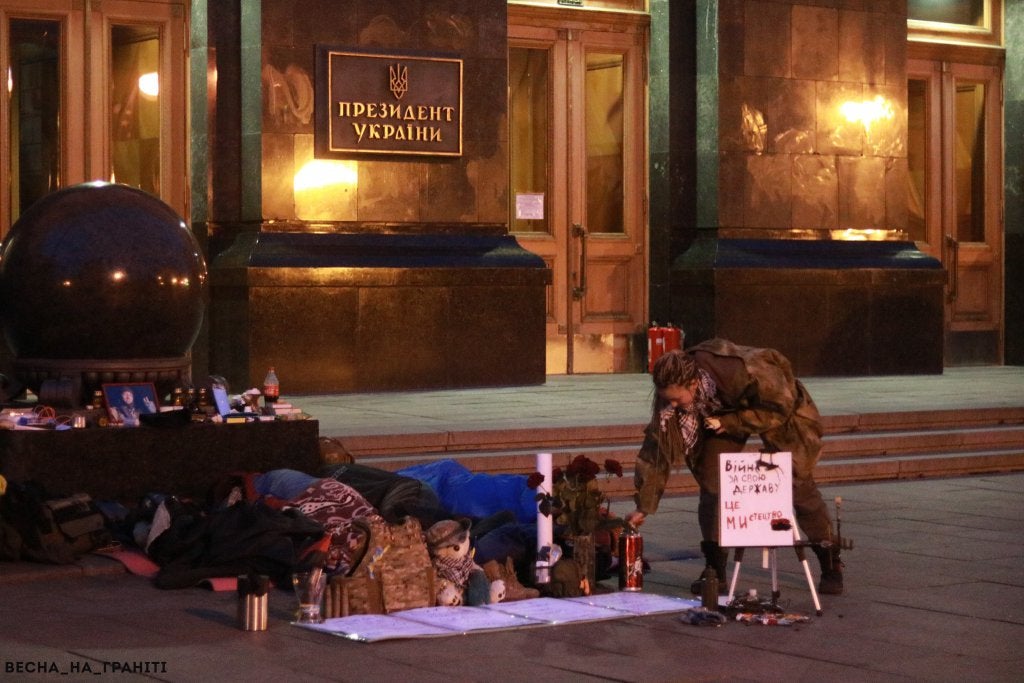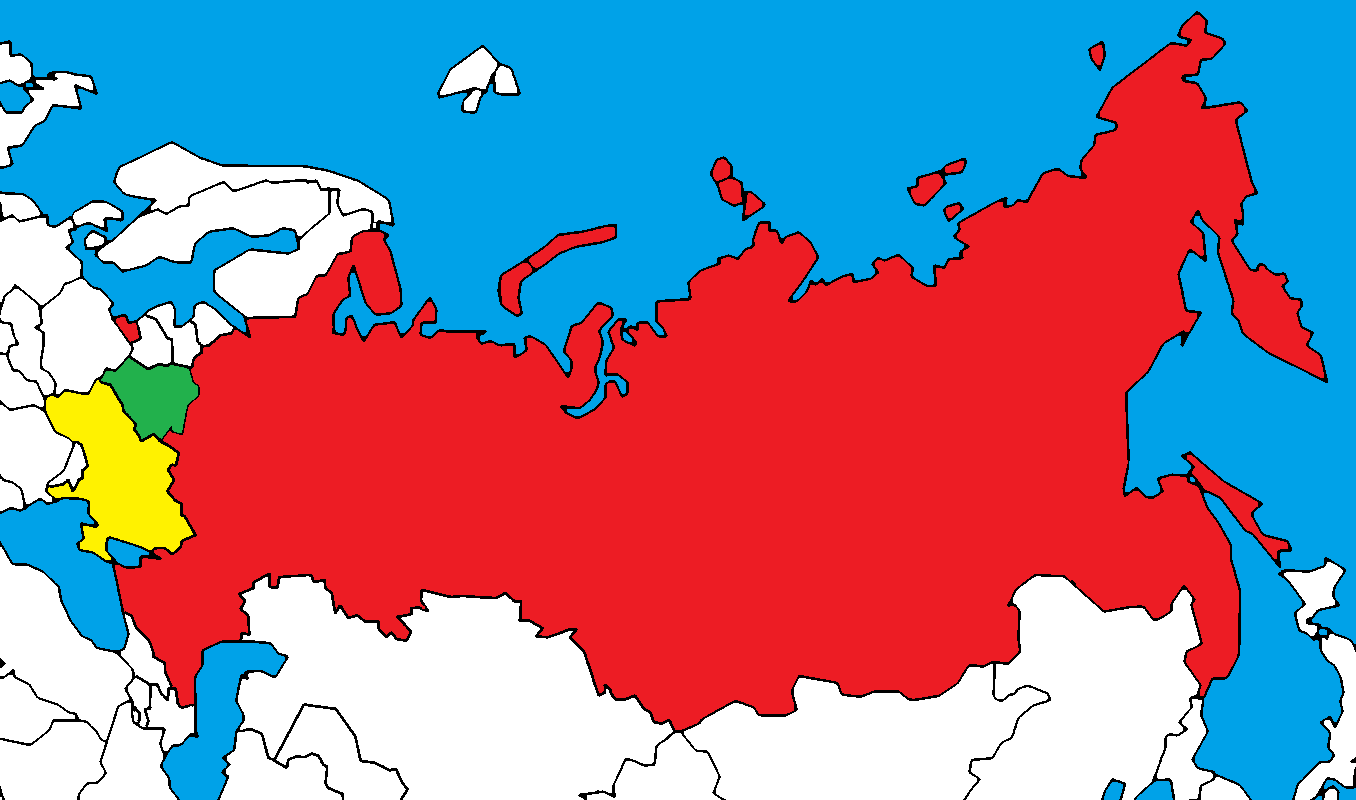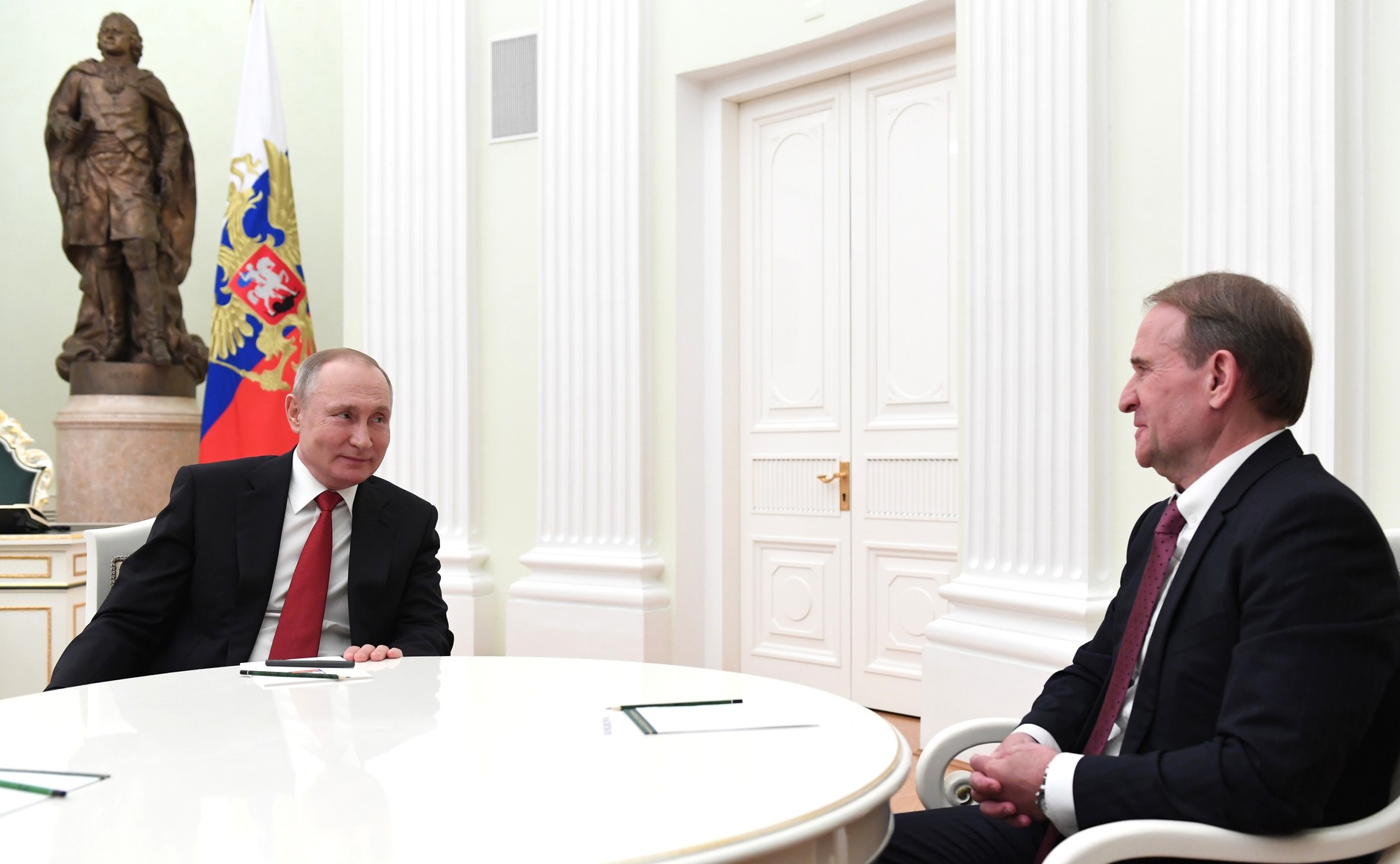In recent months, the Kremlin dramatically stepped up efforts to push its interests and political agenda across the post-Soviet space as part of various “negotiations” and “conflict resolution procedures.” A particularly striking example of this can be seen in the results of the most recent Minsk negotiation process pertaining to the war in eastern Ukraine (Dzerkalo Tyzhnia, March 13).
The Russian and Ukrainian presidents’ representatives, Dmitry Kozak and Andrii Yermak, respectively, met in Minsk on March 11. There, they agreed to create a new negotiating platform, to be called the Advisory Board, as part of the wider Minsk talks. The new platform, as proposed, would treat the Ukrainian government and Moscow’s proxies in occupied Donetsk and Luhansk as coequal parties to an intra-Ukrainian conflict. Russia, meanwhile, would henceforth be considered an impartial observer in the proceedings (see EDM, March 19).
More generally, the move will provide support for the Kremlin’s agenda for resolving the situation in Donbas. Namely, Moscow would like to see the incorporation of constitutional amendments on decentralization; a special status conferred to Donetsk-Luhansk; general amnesty for all militants involved in war crimes; and the passage of a special law on local “elections” in the occupied territories (see EDM, March 19).
Meanwhile, Ukrainian analysts have highlighted other risks associated with the approval of the protocol considered at Yermak’s March 11 meeting with Kozak. In particular, the head of the board of the Crimean Tatar Resource Center and member of the Mejlis of the Crimean Tatar people, Eskender Bariev, noted that recognizing Russia as an impartial observer will significantly weaken Ukraine’s international position. According to him, this amounts to discussion on curtailing the sanctions imposed on Russia precisely for the invasion of Ukrainian territory and its occupation. If Ukraine itself recognizes the war in Donbas as an “internal” conflict, it would logically follow that there are no grounds for imposing sanctions on Russia (Krymr.com, March 21).
Iryna Gerashchenko, a Ukrainian member of parliament from the European Solidarity faction, also noted that the creation of the Advisory Board in accordance with Moscow’s conditions weakens Ukraine internationally (Radio Svoboda, March 13). Ukrainian publicist Vitaliy Portnikov explicitly calls the creation of the Advisory Board “part of the Russian plan to lift sanctions, and not at all the [appropriate] way to de-occupy Donbas” (Radio Svoboda, March 14).
At the same time, Ukrainian experts fear that, having resolved the economic problems caused by the sanctions, the Kremlin will renew its efforts to attack and take control of additional Ukrainian territory. In this case, all legal and material responsibility for the almost 14,000 dead in Donbas and its attendant economic devastation would be transferred to Ukraine. Accordingly, Ukraine’s position in international courts will be significantly weakened (Radio Svoboda, March 14).
Trending Now
The European Court of Human Rights (ECHR) is considering hundreds of cases based on statements by victims of Russia in Crimea, including a case involving Moscow’s ban of the Crimean Tatar Mejlis. Additionally, the United Nations International Court is considering cases against Russia for financing terrorism and violating the rights of Crimean Tatars and Ukrainians in occupied Crimea (Eurointegration, November 8, 2019). Crimean Tatars face brutal repression from Russian Crimean authorities, but if Russia is not recognized as a party to the conflict, it will be much more difficult to prove its guilt (see EDM, March 19). The final decision on the creation of the Advisory Board is supposed to take place on March 25, at the next meeting of the Tripartite Contact Group in Minsk.
Pushing its agenda in negotiations with Ukraine is not the only example of the Kremlin attempting to expand its influence in the post-Soviet space. On February 27, Moscow hosted the presentation of an report on solving the problem of the so-called “in-between states,” where Russia and the West vie for influence: Azerbaijan, Armenia, Belarus, Georgia, Moldova and Ukraine (Kommersant, February 27). Specifically, the report proposes to consolidate the non-aligned status of the “in-between” states and create a new consultation mechanism on regional security issues, the permanent members of which would be the United States, Russia and the European Union. However, any “in-between country” should have the right to participate in regular meetings, if the agenda includes issues affecting its interests. At the same time, the document says Western countries and Russia should stop pursuing policies aimed at pulling the “in-between states” into their respective spheres of influence.
As Moldovan journalist Serhii Ilchenko notes, the proposed text is a rather loose retelling of a recent report prepared by the US think tank the RAND Corporation, whose original passages were “adjusted so as to please Russia” (Dsnews, March 2). Meanwhile, the Russian version of the report is already raising serious questions from leading US researchers. Paul Goble, an expert on Eurasia and a former analyst of the US Department of State, notes that if this mechanism, in its Kremlin interpretation, is implemented, the fate of sovereign states will be decided by foreign governments, not the peoples of these countries (Krymr.com, March 18).
According to Goble, the wording used in the Russian version of the RAND document does not determine who will take key decisions on controversial issues and, most importantly, whether the country whose interests are directly affected itself have such a right. The proposed mechanism only notes the right to participate in meetings, but not the possibility of casting a vote (Krymr.com, March 18). The former State Department official also notes that there are no guarantees Russia will comply with the ban on attempting to pull “in-between states” to its sphere of influence, given that Moscow has repeatedly violated international agreements and now has even enshrined this right into its new Constitution by declaring domestic laws supreme (Krymr.com, January 23). The deep concerns raised by Ukrainian and Western experts such as Bariev, Portnikov and Goble collectively raise the alarm about the consequences of “appeasing an aggressor” and advise post-Soviet state leaders not to believe the “peaceful” promises offered by Moscow.
Read More:
- Russia to become observer instead of party to conflict under proposed Donbas negotiation format, MP Yasko says
- Ukrainians launch online protest against recognition of Russian-run “Donbas republics” set for 25 March
- Ukraine’s president Zelenskyy turns blind eye to Putin-Medvedchuk scheming
- Ukraine’s government has ventured into dangerous waters, but it’s not too late to set the boat on course – Marynovych
- Russian electronic warfare in Donbas: Training or preparation for a wider attack?
- The pro-Russian network behind coronavirus riots in a small Ukrainian town
- Quarantine parliament: Ukrainians rally against using coronavirus situation to rush treasonous laws
- Shady agreements legitimizing Russia’s puppet “republics” likely signed in Minsk




